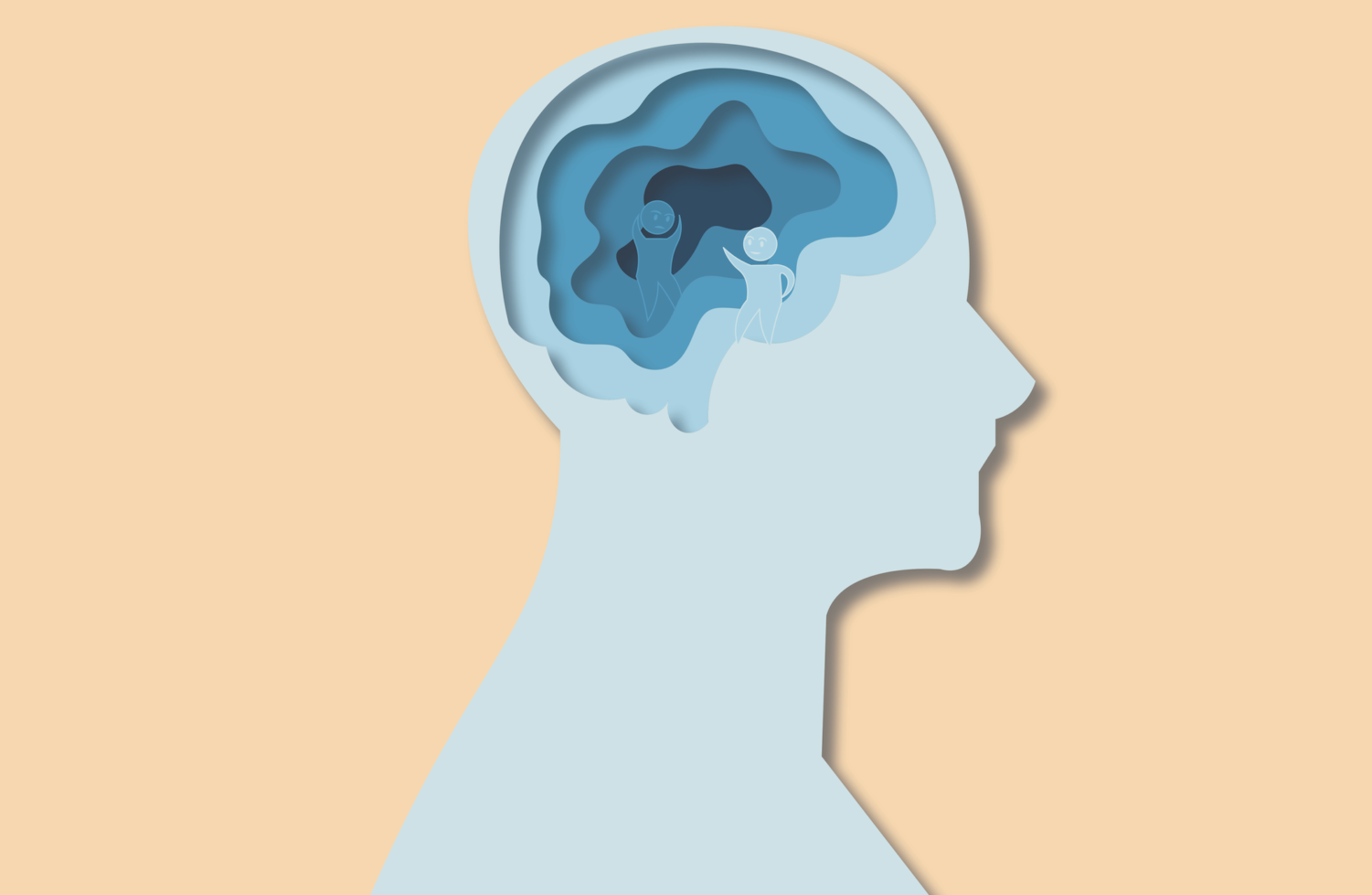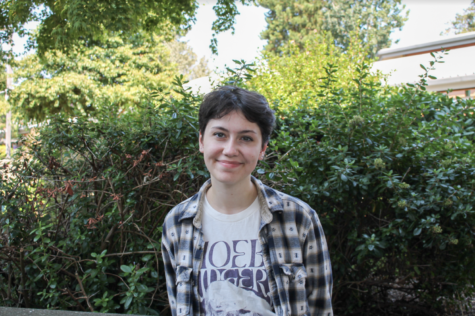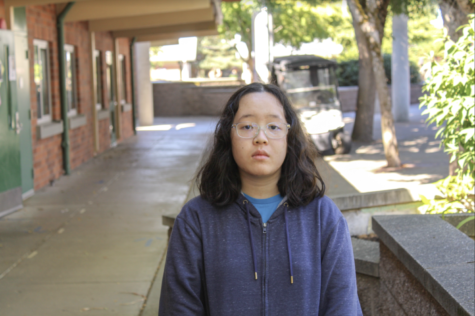Walking across Inglemoor’s campus, it’s impossible to miss the brightly colored posters inviting students to participate in peer training for suicide prevention plastered in windows and doorways. What lay behind the posters, however, continued to be a bit of a mystery.
During the 2021-22 school year, Inglemoor began to post QR codes across campus, inviting students to sign up as peer trainers for suicide prevention. This peer-to-peer-taught curriculum — Forefront Suicide Prevention — was created by the University of Washington’s research office. It was piloted in local high schools to make an accessible and structured way for students to access tools and resources for suicide prevention, and the program is continuing this year to aid in suicide prevention research.
After a two-day training, the peer trainers present to freshman health classes about the LEARN acronym, which stands for “Look for signs, Empathize and listen, Ask directly about suicide, Reduce the dangers and Next steps.” As most students, especially freshmen, are required to take health, these presentations give the program a broader reach across the student body. Counselor Devin Blanchard (she/her) said these presentations are incredibly beneficial to the program and help students not only have more knowledge about suicide prevention but have more confidence in taking action.
Blanchard said that after completing presentations, more students come forward to report someone they are concerned about. Sophomore Anna Polyanskiy (she/her), who participated in the school’s suicide prevention program last year, echoed Blanchard’s comments.
“I think there was definitely a very large outreach,” said Polyanskiy. “And considering how many people we were able to do training for, I think that there were people who it definitely did help.”
Personal experience can often be a significant motivation for students to get involved in suicide prevention training. For example, Polyanskiy said she once had a friend directly contact her during a mental health crisis, and she felt empowered after being able to effectively help them. Likewise, sophomore Hazel Colver (xe/they/he) felt that suicide prevention was very interconnected with xir being a member of the LGBTQ+ community.
Both Polyanskiy and Colver said that despite sufficient resources for suicide prevention and mental health at Inglemoor, not enough people are aware of the resources available to them.
“We get an 8 by 11 printed paper, and it’s printed out this comprehensive list of different sources, phone numbers, text lines, websites. And then on the other side, there’s the LEARN acronym with specifics and steps and tips on how to talk to people they’re worried about,” said Polyanskiy. “I think it would be helpful to have those papers be more accessible to everyone because I feel like the only people I’ve ever seen with them are people who have been directly involved with training.”
Additionally, it is important to note that health classes are mainly populated by freshmen and sophomore students. Because of this, this program does reach the entire student body as most upperclassmen are not enrolled in health and fitness classes.
Blanchard added that many students refrain from reporting signs that someone is suicidal as they might feel concerned that the student would find out they had been reported.
“It’s informed reporting about an issue that they’re concerned about,” said Blanchard.
She also said that there is a resource available on Inglemoor’s website called SafeSchools Alert that allows students to anonymously report concerns about other students without having it traced back to them.
“A student or a parent or anybody can go on to that reporting tool, and just type in whatever information, and it gets shot out to counselors and administrators, and it’s 100% anonymous,” said Blanchard. “It’s a pretty cool thing that I definitely feel is underutilized.”
While having students and school counselors trained in suicide prevention is especially important, these training programs do not teach people to be therapists. Blanchard added that it is dangerous for them to attempt to fill that role when they don’t have the necessary experience or knowledge. Inglemoor had a dedicated mental health counselor up to the end of February and is seeking a replacement.
In the meantime, Inglemoor is still working on building and creating resources for students struggling with mental health, and this peer training program is at the forefront of helping build a stronger community.
“I love the program. I just think it’s so good for you guys to have even a basic awareness of identifying signs and struggling in our friends,” Blanchard said. “I love it; it’s just such a good program. It saves lives.”













